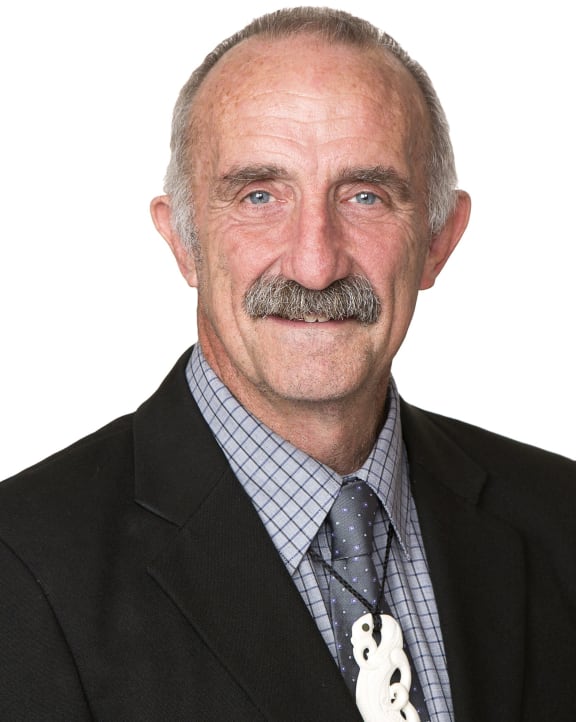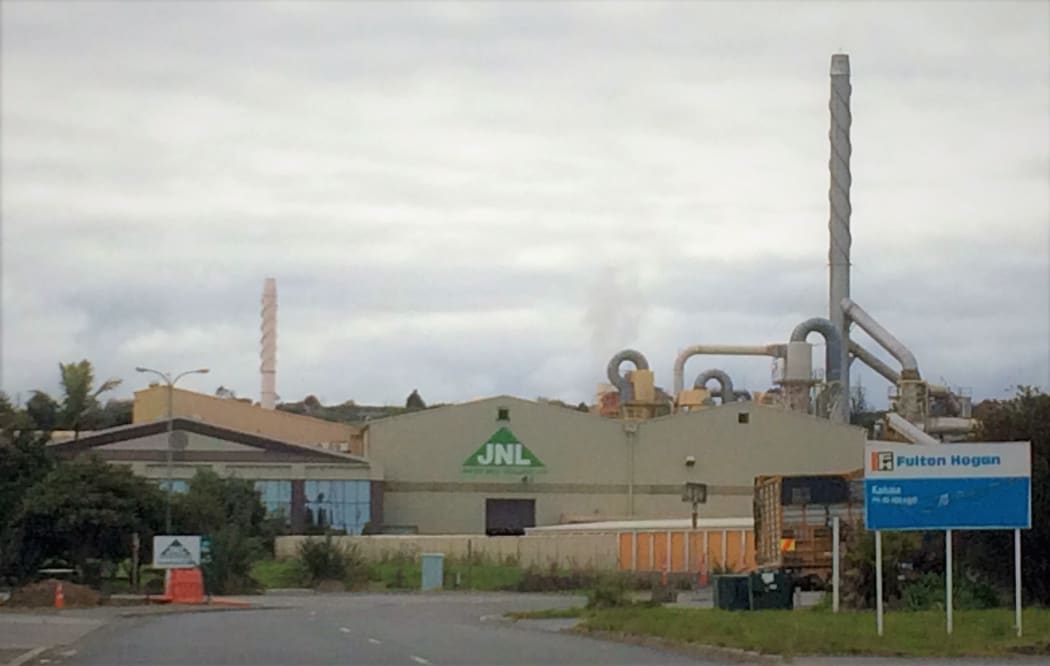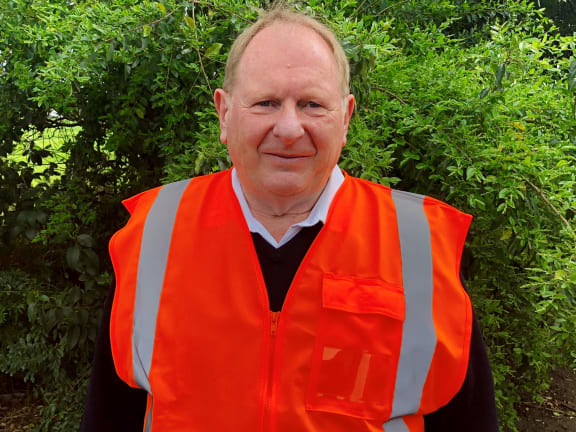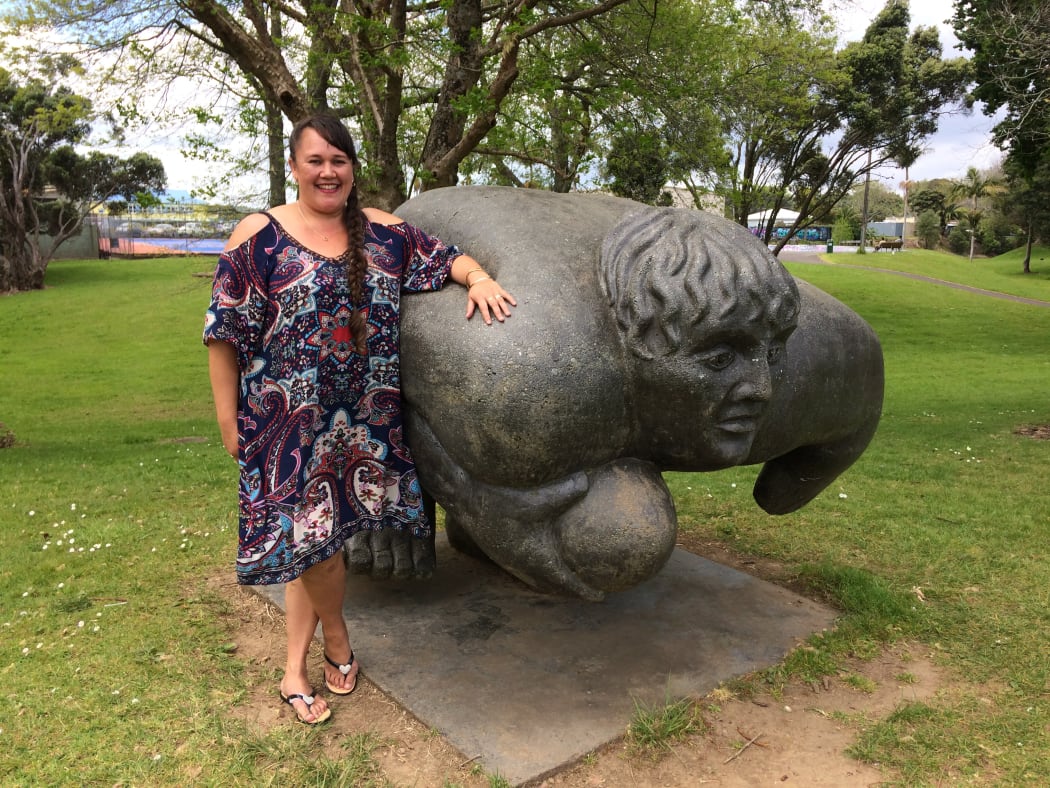The Far North town of Kaitaia has been given a reprieve, with news its wood processing plant won't close - for now.
But Kaitaia, like so many small New Zealand towns, is still at risk of "zombie" status.
This week the government has been throwing money around like Santa Claus throws lollies in a Christmas Parade.
Regional Economic Development Minister Shane Jones announced a suite of initiatives which will draw down about $80 million of the $3 billion Provincial Growth Fund.
It’s one of many welcome initiatives the government has put forward to help boost the economy of our provincial centres.
But is it enough? Or are some of our smaller townships just doomed to fail?
The Far North town of Kaitaia recently faced down one of its greatest threats - the closure of its biggest employer - the JNL triboard wood processing plant.
Far North Mayor John Carter got a phone call on cool spring Wednesday in September asking him to be available for a call from the mill’s management over the weekend.
“I sat there for three nights, I’m not sure whether you’re allowed to say cacking my pants, but I was seriously worried,” he said.

Far North District Council Mayor John Carter. Photo: Supplied
Even the mill’s employees were pessimistic. One worker, who asked not to be named, said they all thought it was going to close.
“We just thought well, this is it."
In the end, Kaitaia got a reprieve - for now. Hilliard says JNL plans to stay though 20-30 people will lose their jobs.
"At the end of the day we had to make a decision whether to modernise the plant or close it and I think we're really lucky that our owners have committed to modernise," he said.
"The company has taken a significant hit to be able to do that, to give longevity to those mills, and that is a huge win for Kaitaia."
Economist Shamubeel Eaqub said the difficulty with some of our regions is that they have all their eggs in one basket. They grow around one particular type of industry and that’s often been forestry, meat processing or dairy processing.
“But over time, technology has improved in terms of transport and industrial processes, so we don’t need to have as many factories,” he said.
“So a lot of these very small communities might begin finding themselves without any economic opportunities.”
Kaitaia is slightly more diversified, with farming and tourism also playing their part. But the mill is key.
John Carter describes it as a “really, really important part of our vibrant town.”
An outsider looking in at Kaitaia would see a town of roughly 5,000 people - with a nearly 50/50 split of Pakeha and Māori. It has one supermarket - a Pak ‘n Save - its main street has a couple of banks, two surf shops, cafes, and more than one pharmacy. It’s often difficult to find a car park on the main drag.
But Kaitaia also has 18 percent unemployment and Carter said the mill’s closure would be “a disaster”.

Photo: RNZ/Liz Garton
“In itself it’s a big employer, but it’s the downstream jobs that it creates that’s important for our community. And that’s anyone’s guess of 1200-1400 jobs,” he said.
The mill’s general manager, Dave Hilliard is not blind to how closing the mill would hit the town.
“If both plants closed, that 250 jobs, that’s 250 families. I mean, that’s a direct affect on over a thousand people and then do the multipliers - that’s a huge impact on a place like Kaitaia,” he said.

JNL NZ general manager, Dave Hilliard Photo: Supplied
The mill has already been through three restructures and our mill worker was there for them all.
“I work in the wood prep area, which refines the chip into fibre. This has been my main job - but I can also run the boiler, drive the loader, run the flaker which makes the strands - pretty multi-skilled. Which is a good thing,” he said.
And that’s because he diversified. Which is exactly what Eaqub says the regions themselves need to do more of. But that’s easier said than done.
He said regions can be deliberate in encouraging new businesses to set up shop, to start encouraging new industries to take shape.
“But the big constraint for a lot of places is they simply don’t have the people and skills that might do that. The people who are there are there because of the industries that are there currently,” he said.
Eaqub coined the term "zombie towns". We’ve all seen them, the once thriving areas which are now boarded up buildings, smashed windows, graffitied walls.
He’s fatalistic about this future for many of our provincial towns.
“If you look back through our history, we’ve always had the rise and fall of places, but in total we’ve become more prosperous and part of that is the changing nature of the economy,” he said.
“A hundred years ago, a third of our jobs were in the primary sectors, in farming and on the land. Today it’s less than 7 percent.
“So, we just don’t have those opportunities for people to live in those places,” he said
And he warns that the trend we’ve seen of people moving to urban centres is not going to stop.
“And we shouldn’t stop and fight it.”
Meanwhile, the mill will stay, but the future's not exactly certain for Kaitaia.
In recent years, Kaitaia’s hospital services have been scaled back, Air New Zealand has stopped flying there and it was recently dubbed the 'Murder Capital of New Zealand'.
Kaitaia local Naomi Austen-Reid was so furious about this. She described it as “media bullying” and started the social media campaign #ilovekaitaia, which aims to highlight the great things going on in the community.

Naomi Austen-Reid Photo: RNZ/Liz Garton
Austen-Reid has friends and family working at the mill, who will lose their jobs in this restructure.
But she believes while the town’s fortunes are tied to the mill, its closure wouldn’t be the end of Kaitaia.
“That’s what I love about this place, we don’t lie down and take things.
"We get up and fight back, every time.”
“We’ve got the beach on the back doorstep, so there’s always kai. We always try to provide for ourselves.”
Carter is ecstatic about the decision to modernise the mill. He said the region is doing a lot of other things to help boost its people’s fortunes.
He describes the region as “a district of opportunity” and said it is in the middle of an “economic renaissance”.
“We’re trying to expand so we’re not entirely reliant on just one and that the business itself doesn’t feel it’s got a commitment as much as it has at the moment,” he said.
And that’s exactly how Eaqub believes small NZ towns need to think, in order to survive
“Part of it is looking at what regions are good at and trying to nurture and grow that. But it has to be local approach. It has to be the locals that drives that because they’re the one who know what their strengths and weaknesses are.
"What you have to do is boost those strengths and hope that it’s going to become a self-fulfilling thing."
Two Cents' Worth is a co-production of RNZ and Newsroom.

